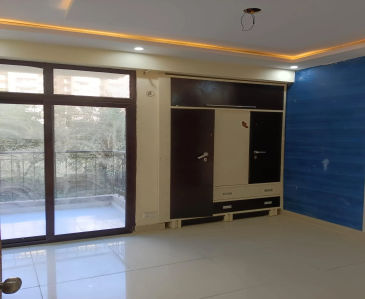Understand the laws that protect the interests of buyers of apartments
Koheli

Introduction
It may take a person month or even years to find an ideal dream house in a desirable community. But oddly, they seldom give the legal ramifications of their property ownership any thought. The desire to purchase a home is so great that other crucial considerations frequently take a backseat. Even the most intelligent people are found to have made this error.
You spend millions on your home's purchase and decoration. Therefore, the investment must be made with extreme care and attention. To avoid issues and future regret, it is essential to consider every small but important detail carefully. Being proactive when purchasing real estate is only fair because you use your hard-earned money.
Here are some laws to protect the interests of flat buyers.
A Few Conditions Before the Legalities
The buyer should frequently visit the property both before and after the sale. You can learn about the project’s status directly from this. The deadline for giving the buyer ownership of the apartment is outlined in the sale agreement. Usually, payments are related to how the construction is coming along. You can determine the project’s progress when you visit the site. The calibre of the materials utilised to build your flat is visible. The builder and regulatory authorities can be contacted right away about any delay, deviation, or default.
RERA Changes the Game:
India's real estate market is enormous but mainly disorganised. The quick expansion of this industry was not under the control of a single regulatory entity. There were no national standards that were the same everywhere. Due to this, numerous real estate developers experienced substantial delays and widespread defaults. Homebuyers were abandoned, and many wound up paying both rent and EMI because they had gotten bank loans but still had not received possession of their properties, even after waiting for 8 to 10 years. This caused numerous legal and financial issues for the general public and the real estate industry.
With the primary goal of defending the interests of homebuyers and regulating the real estate industry, the Real Estate (Regulation and Development) Act 2016 was passed by the parliament. The Real Estate Regulatory Authority (RERA) was subsequently established. The act places the builders under several legal requirements to enforce greater accountability in real estate transactions. By ambiguous clauses in the sale agreement, a builder is no longer permitted to con the customers.
With the RERA in place, any issue that may arise for a home buyer, from construction to delivery, can be promptly resolved by a qualified authority. You are no longer expected to operate from one support to another to defend your interests. According to the RERA act, each state must set up a regulatory body and an appeals court to handle homebuyers' complaints. The real estate industry will be able to flourish more fully as a result of increased responsibility, transparency, and operational efficiency.
Essential Elements of the RERA Act:
1. Establishing a regulating body in each state to swiftly settle any complaints about the real estate industry.
2. Real estate developments must register with RERA to give the authority legal jurisdiction. Sales of projects can only start following RERA registration.
3. Without the written consent of at least 2/3 of the project's buyers and approval from RERA, the builder cannot transfer the buyers' rights to a third party.
4. If the buyer or the builder defaults, both must pay an equal amount in interest as penalty charges.
5. The builder must compensate for any damages the buyer suffers due to the property's flawed title.
Key advantages for homebuyers:
The following list of some of the primary advantages new homebuyers might get from this historic legislation.
The law defines the carpet area precisely to determine how much an apartment will cost. Builders must base their prices on the carpet area rather than the super built-up area (SBA), which is prohibited.
1. Interest Charges for Default: Before the implementation of RERA, buyers were required to pay higher interest rates for late payments than builders would have in the event of late delivery. Now both parties are paying the same interest rate.
2. Separate Bank Account: Previously, a builder collected money for one project that could be used for other projects. But RERA stipulates that at least 70% of the funds raised for a project must be kept in a separate bank account.
3. Construction Quality: Within 30 days of receiving a complaint, the builder shall fix any construction flaw with no additional charge that arises within five years of the sale of the apartment.
4. Grievance Redressal: Regulatory bodies and appellate tribunals must be established in each state to settle disputes. Any person who feels wronged by the authority's decision may appeal to the tribunal, which must decide within 120 days.
Conclusion
A few precautions before buying a property will help you save time, money, and energy. Home purchasers now have more authority than ever, thanks to the RERA laws. Even though the government has contributed by passing a robust law, it is equally crucial for people to be informed of their rights before exercising them.




